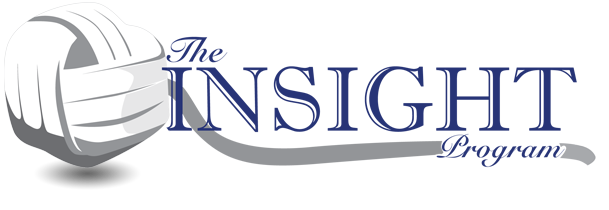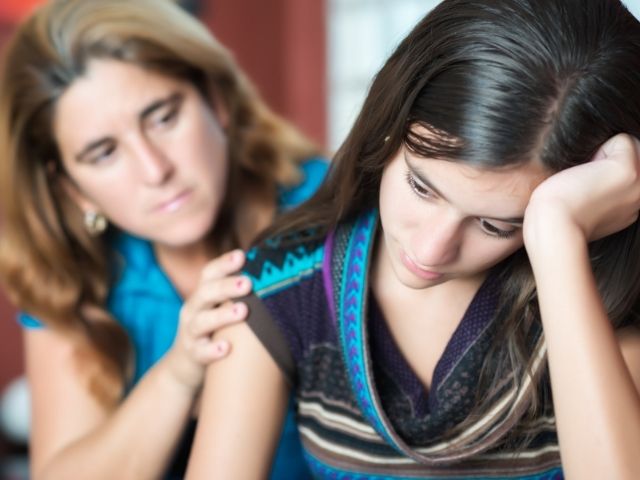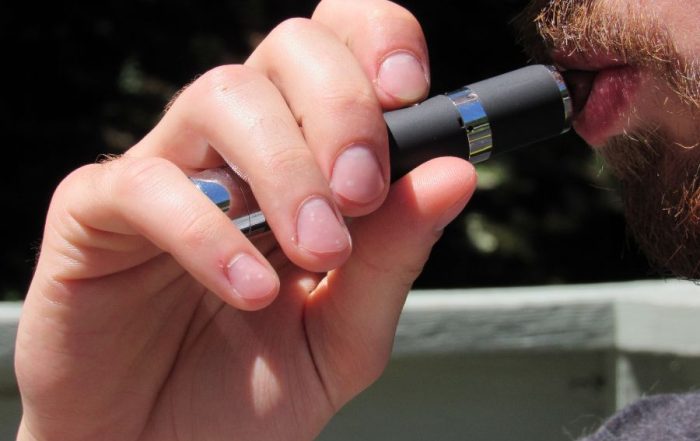My Teen is Smoking Weed? What To Do if Your Teenager Is Using Drugs
Unfortunately, this situation is all too common – parents suddenly learn that their teen is (or may be) using drugs. Often, this comes as a result of a young person being caught at school, stumbling across a hidden stash of paraphernalia, or being surprised to find that their child is being escorted home by police. Many parents feel ill prepared in this moment – after all, they haven’t had to deal with this situation before! In our program, we often note that most parenting books don’t have a chapter entitled: “How to Respond When You Find Out Your Teenager is Abusing Drugs.” The reality: there isn’t any one right answer to responding to a teen who may be using drugs.
We hope this post helps provide you with some initial next steps to take in the event that you discover that your child might be doing drugs or drinking alcohol.
The first step – stop and give yourself a break
Many parents are overwhelmed by the wave of emotions they feel when they first make this discovery. Parents often wonder why creating a drug free environment at home didn’t seem like it was enough. Though every parent’s reaction is different, it’s not uncommon to feel some combination of anger, rage, fear, guilt, or shame as a result of this discovery. Know that it’s normal to experience these feelings and support for parents is available.
Even those who have experience with drugs and alcohol from their high school or college years often feel blindsided by this discovery – and that’s okay too. The truth is that we all have “blind spots” when it comes to our loved ones, because we love them so much! If you feel that you should have seen this coming or that you should have the answers, let yourself off the hook. The reality is that no parent ever expects to discover their child having a drug or alcohol abuse issue.
Educate yourself on the reality that your teen is facing
No one is saying that you need to go read 1000 books about drugs or become an expert – but it does make sense to put your child’s drug use in context.
The Modern Drug World:
A lot has changed since the times when the average age parent of a teenager or young adult was in high school or college. The teen drug world now includes:
- Marijuana is far more potent and is socially (and legally) accepted. Smoking marijuana is also not the only way to ingest THC anymore – high potency THC products are readily available and the effects of marijuana (and it’s side effects) have changed as the drugs have gotten stronger.
- Opiates have become prevalent.
- Synthetics are readily available.
- An non-stop stream of instant gratification is available to your teen at all times.
- Alcohol continues to be abused by young people as it has been for decades. SAMHSA’s National Survey on Drug Use and Health shows that around one in four 12-17 year-olds has abused alcohol at some point, and around one in five 16-17 year-olds have abused alcohol in the last month!
- Studies show that the modern marijuana movement is having a major effect. According to the National Institute on Drug Abuse’s Monitoring the Future Survey, teens are beginning to use drugs younger, and their perceptions of the risks are lower than ever.
The Teenage Brain:
It is well documented that the prefrontal cortex (the part of the brain responsible for delaying gratification and making sound decisions) is not fully developed in humans until age 25. Contrast this with the fact that the brain’s reward centers are fully developed during childhood. Teens in general have a hard time deciding not to do something if they know it will be pleasurable or fun. This is one of the reasons that traditional approaches to teen counseling and drug addiction treatment often falls flat with young people.
Mental Health Considerations:
We know a lot more about mental health than we used to. Many young people who develop substance abuse problems have other issues as well. Sometimes, parents are aware of these issues before they discover that drug use is involved. Our next step will explore some action you can take as a parent to start to unravel what’s going on with your child. A word of caution: there is a tendency for many parents to want to resolve emotional and mental health issues as a way of trying to “fix” a child’s drug problem. We find that most of the time this approach leaves everyone frustrated. If a young person has developed a real substance abuse problem, he or she will have a difficult time being motivated to face any other issues until he or she is sober.
Therapists, counselors, and health care professionals trained in addiction can be an invaluable resource in determining next steps. Which leads us to:
Next, consult with a professional
When we say “consult” with a professional, we truly mean just have an initial conversation with them. Many local addiction therapists, social workers, counselors, or physicians will be happy to speak with you and provide some guidance. Some will even do it for free, and these conversations are confidential. They can help you answer some questions such as whether you should drug test your teen, or how to know if your behavior is helping or enabling them.
The reason we recommend consulting with a professional is that the professional has seen these types of situations countless times in the past and they will be able to provide sound and objective feedback regarding your next steps. They will also help coach you through the process of starting the conversation with your child about next steps.
What to look for in a professional:
- Do they have training in responding to addiction or substance abuse issues? If not, are they willing to recommend someone who does? As mentioned above, we don’t want to start trying to “fix” mental health issues without first addressing the elephant in the room.
- Do they have training and experience in working with teens and young people? Earlier we stated that the teenage brain is in a different developmental stage than an adult – we want someone who understands this and can make recommendations accordingly.
A professional who understands adolescents and who also has a firm grasp on addiction can help you by answering some of the questions you’ve been asking yourself:
- How do I know if this is a real problem?
- How do I know what kinds of drugs they’ve been using?
- Can I trust my loved one after they’ve been using drugs?
- Is my son or daughter an addict?
- Is this just a phase?
- Does my child need to go to rehab?
- Should we switch schools?
- How do I set up real, logical boundaries that my child will respond to?
Seek support for yourself
Often, during these times of crisis, all of the family’s focus goes onto the teen smoking weed or using drugs. While at face value this may seem like the most obvious approach, we’d recommend seeking support for yourself as well. The professionals you consult with can suggest sources of support, but we’d also like to present some resources:
- Parents of Addicted Loved Ones holds free, confidential support group meetings for parents all over the country.
- Al-Anon Family Groups also holds free, confidential support groups all over the world. Note that the focus of Al-Anon is typically on spouses of alcoholics. Some parents find they like Al-Anon, while others do not. We’d recommend trying a few meetings before deciding if it’s right for you.
- If you’re in the southeastern United States, please check out one of our support group meetings for parents of teens and young adults with drug problems.
- Many drug and alcohol treatment programs have their own built-in parent support groups. If you end up seeking treatment, be sure that the program you select has this component.
Parents often initially struggle to see the need for seeking their own support, saying, “My kid is the one with the problem, not me!” However, trying to “go it alone” is a really tough journey. We believe it is essential – learning how to respond to your child, get your questions answered, and being able to share and relate to other parents who have experienced success can provide tremendous relief and sense of purpose for parents in this extremely challenging position. Don’t skip this step, if you can avoid it.
Seek drug and alcohol treatment for your child, if needed
Throughout the process of consulting with a professional, they may recommend that you bring the child in for an evaluation. Sometimes the professional will recommend setting up some boundaries and a “watch and wait” approach. Sometimes they will recommend support groups or other resources. Sometimes they will recommend that you seek drug and alcohol treatment immediately.
If you find out through this process that your child has a serious drug or alcohol problem, it is important to seek a program that truly understands adolescents. Working with a young person who has a drug problem is very different from counseling an adult. A young person needs to be able to quickly build trust with anyone providing help. It is also critical that a teenager feels a part of a group. Individual counseling is a useful tool, but having a positive sober peer group makes a tremendous difference for young people. Finally, parent support and education are critical in the treatment process for young people. There are many changes when a teenager enters treatment. It can be a tremendous shock to the entire family. Parents need a group of people they can rely on for support along with counselors who can provide education. When seeking help it is important to ask the following questions:
- Does the program specialize in working with adolescents?
- Does the program provide support services, such as support group meetings and sober events?
- Are parent education and parent support groups available?
- A 2011 study found that a 50-90% post-treatment relapse rate is typical for adolescent treatment programs without long-term aftercare or peer-support services. Does the program have a plan in place for after the young person leaves treatment?
Having clear answers to these questions can inform a parent as to whether he or she is on the right track to finding help. There are a lot of programs available that provide great services. Knowing the right questions to ask can go a long way toward helping parents find the right program.
Don’t forget to tend to your own needs
The journey towards recovery for a kid smoking weed or doing other drugs is sometimes quick, and sometimes not. You love your child, which is why you’re reading this article. But know that sometimes this process can involve major setbacks. As we say in the recovery world, addiction is a family disease, and everyone involved is affected.
One of the main mistakes parents make is not taking care of themselves over the long haul. Take vacations, connect with your friends and family, and do things you like to do. Not doing this can have dire consequences for your own emotional, mental, and physical wellbeing. Your child having a drug problem doesn’t mean your life has to stop.
Next Steps
Being thrust into this situation of learning your child is using drugs can be extremely scary – but there is help and support. As mentioned above, if you live anywhere in the southeastern United States, feel free to contact our drug and alcohol program for young people or call us. We will be happy to spend some time on the phone with you or set up an appointment to evaluate your situation or make some recommendations. There is always hope – young people recover from drug problems all over the country, every day.







